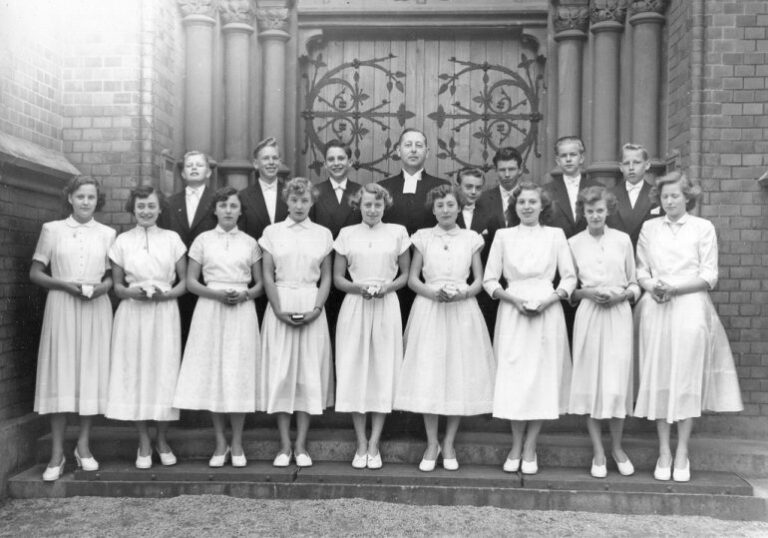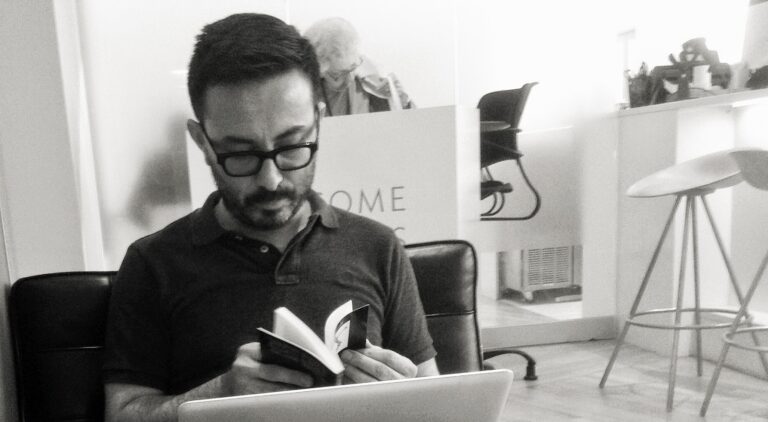Dirty Realism, Veteran Transition, and Contemporary War Literature

Somewhere between “fiction” and “nonfiction” sits the military veteran, pen and paper in hand, wondering why they lived while their friends died. They’re coming to terms with having killed someone, maybe because they don’t feel the guilt so many blockbuster movies told them they’d feel. Military customs and standards have so deeply invaded their psyche that for the rest of their lives, they will be subject to involuntary cultural lapses where they engage in military jargon or gestures. In this way, they are always transitioning. They struggle with the harsh memories of war: long periods of boredom splattered with occasional spurts of terror. These horrific moments come and pass quickly. A four-hour firefight seems to last mere minutes. The moment compresses into a surreal replay that skips details. Reality and memory are bent to their limits. And all that is left is a story that contains no moral, higher meaning, or complete picture. It’s merely an event that’s difficult to retell because few details can be remembered. It doesn’t seem real anymore. It’s fiction, but it really happened.
Tim O’Brien discusses such an event in The Things They Carried (1990). He describes witnessing a fellow soldier being killed by an improvised explosive device. This description aside, perhaps the most interesting aspect of the story is O’Brien’s metacommentary: “But if I could ever get the story right, how the sun seemed to gather around him and pick him up and lift him high into a tree, if I could somehow recreate the fatal whiteness of that light, the quick glare, the obvious cause and effect, then you would believe the last thing Curt Lemon believed, which for him must’ve been the final truth.” In this passage, O’Brien attempts to describe a traumatic event but has difficulty getting the story perfect. It was a quick moment for him, and few details remain from the overall truth. In many genres, readers might question O’Brien’s writing skills for not being able, or willing, to share the full details of Curt Lemon’s death. Yet it is precisely because O’Brien cannot remember every detail that his story passes the reader’s “is this real or not?” test.
But this assertion isn’t new. Many people have examined O’Brien’s literature and come to similar conclusions. However, as a US Marine who served during the Iraq and Afghanistan Wars, I find his work honest in a way most war literature is not. I also experienced traumatic events during my military service. And in attempting to retell those stories, I found myself thinking along the same lines as O’Brien’s metacommentary. Because of this, I appreciate his ability to articulate military experiences in a way many veterans, including myself, struggle with.
O’Brien’s metacommentary also suggests he is undergoing a constant transition between what happened and how best to tell the story. After such an event, you find yourself trying to decipher what happened over and over again. As the years go by, certain details are lost and the story’s delivery changes. These events are key factors in a veteran’s ability or inability to transition from wartime experiences to normal life. It’s an internal battle to recall the events and how best to move beyond them. By sharing few details of Curt Lemon’s death, O’Brien is giving the reader insight into the daily thoughts and perspectives of many veterans: How do I take such complicated and hard-to-fathom events, like those I experienced in war, and relay them to a society that will not fully grasp the complexity? The same logic can be applied to the average veteran attempting to transition into civilian life: How do I unlearn this deeply ingrained military training, which in many cases kept me alive during the war, and move on to become a normal person again?
***
It was often joked during my service in the Marine Corps that the bottom three percent of Americans were the ones defending the top one percent. Those surrounding me, to include myself, were not the idealistic or nationalistic heroes so often discussed in novels like Battle Cry by Leon Uris (1953). We were young, impressionable Americans who joined our respective military branches because we felt we had no place else to go. We came from rough backgrounds and often took issue with our fathers or upbringing. The deep psychological implications of such issues led us to search for structure and meaning in our lives. Within the structure and day-to-day responsibilities associated with defending our country, we found purpose. Many of us left our blue-collar jobs entranced by the notion of becoming the young man or woman others would stand and clap for at football games or write about in memoirs and novels.
We were seduced by the nationalistic fervor fed to us by novels like Battle Cry and films like We Were Soldiers. But upon looking behind the curtain, we quickly realized that military service did not fit our expectations. Because of this, more often than not, war literature did not capture our story. We would find ourselves critiquing war novels and movies, commenting that, for reasons we could never quite agree on, the stories seemed mechanical and unrealistic.
In “The Functions of War Literature,” Catharine Savage Brosman argues that war literature has “acted on the imagination of the young to shape a sense of national purpose and inspire a bellicose spirit.” It’s in this description of war literature that we see why veterans like my friends and I initially joined the military. Though this notion is complicated by the fact that many veterans join the military not out of a sense of nationalistic duty, but out of personal necessity, the same “bellicose spirit” Brosman describes takes over when you first begin your journey in the military, only to come crashing down once reality sets in.
Brosman’s assertion doesn’t hold true for post-9/11 US war literature, though. The genre today, written by veterans of the Iraq and Afghanistan Wars, as well as those who experienced war while working in other occupations, does not seek to promote a sense of nationalistic pride either intentionally or accidentally. Instead, it resembles “dirty realism,” a style described by Bill Buford’s editorial in the June 1983 issue of Granta. Contemporary war novels describe men who possess substantial character flaws, like drug use or run-ins with the police, as they transition into and out of the military and as they experience the violence of war. Unsurprisingly, just as veterans are in a constant state of transition, so is the literature about them.
But contemporary war literature moves beyond dirty realism in many ways. Standing on the shoulders of the genre coined by Buford, its stories reflect American society’s desire to observe violence, dismay, and harsh rhetoric in the things they read and watch—violent videos of extremists beheading journalists or protestors being killed by speeding vehicles gather millions of views and flood our newsfeeds. The dystopian realism of contemporary war literature adopts the sentence structure of dirty realism and combines it with this insistence on experiencing the extreme. Americans need no grandiose language to help them imagine violence. They live with it every day.
***
Authors of post-9/11 US war literature who have served in the Iraq and Afghanistan Wars or who have otherwise experienced armed conflict have redefined what audiences expect of war novels and films: the contemporary war novel has come to embody characteristics of veteran transition as well as to satiate the need for realistic depictions of war. The characteristics present in literature portraying this transition mirror the struggles of service members in and out of the military, and they reflect an American society that has more recently begun to demand reform in assisting veterans with their transitional needs. The contemporary war novel has transformed itself from a genre filled with nationalistic endeavors to that of a genre concerned with the nuances of the character and author. As a result, post-9/11 US war literature more fully captures the struggles of Iraq and Afghanistan War veterans not just on the battlefield, but in their pre- and post-service lives.
Buford wrote that “dirty realism” was “not heroic or grand,” nor was it “self-consciously experimental like so much of the writing…that was published in the sixties and seventies.” He went on to say that “these are strange stories: unadorned, unfurnished, low-rent tragedies about people who watch day-time television, read cheap romances or listen to country and western music”; their subjects “are waitresses in roadside cafes, cashiers in supermarkets, construction workers, secretaries and unemployed cowboys.” In other words, these stories detailed the nuances of decidedly unremarkable people and the experiences they encountered in their everyday lives. Rather than strive for a higher meaning with inflated language, they sought to provide momentary glimpses of realistic characters to audiences in accessible language.
Though Buford detailed the notable normalcy of dirty realist characters, like the sportswriter in Richard Ford’s The Bascombe Novels, or the blue-collar family man in Raymond Carver’s “Feathers,” he failed to mention a profession that, until that point, had been generally discussed in novels with more nationalistic and heroic terms: that of the soldier.
As few war novels had embodied Buford’s ideals of dirty realism at that point, it’s unsurprising that he did not make this connection. After all, the notion that a member of the military, a person who had agreed to lay down their life in defense of their country, could be considered unremarkable or comparable to a cashier or construction worker probably seemed preposterous, even offensive. But the notion that a service member could be a character occupying one of the occupations Buford mentions is how many veterans, myself included, found similarities to their own stories.
***
More than what, dirty realism affords war literature the ability to discuss. How it delivers the message is also key in understanding why post-9/11 US war literature adopted a form of dirty realism. Buford argues “it is what’s not being said—the silence, the elisions, the omissions—that seems to speak most,” and this is certainly the case for the contemporary veteran. Of interest concerning post-9/11 US war literature’s style is the notion that many perspectives of veterans are shaped by intense experiences not readily discussed. For example, Nico Walker describes soldiers in his novel, Cherry (2018), by writing “your average infantryman is no worse than your garden-variety sonofabitch. But he talks in dick jokes and aspires to murder and it doesn’t come off as a very saintly mode of being.” By not digging into why the average infantryman is this way, he is leaving much of the interpretation to the reader. Walker uses the protagonist’s pre-military and post-military incidents, including drug use and bank robbery, to invite the reader to imagine why the average infantryman might be this way, but it’s the experiences not being shared, yet likely playing a pivotal role in the infantryman’s behavior, that makes war literature as a form of dirty realism so effective.
Cherry is an interesting novel in that it combines a memoir-like concept to a story otherwise labeled as fictional, while adopting the sentence structure Buford argues exists in dirty realism. In fact, Walker, a former Army medic who served in the Iraq War, writes, “This book is a work of fiction. These things didn’t ever happen. These people didn’t ever exist,” at the beginning of his debut novel. Yet this assertion doesn’t seem to convince many, if any, who read it. NPR’s Quil Lawrence referred to Walker’s novel as “pretty biographical”; Ron Charles of The Washington Post called the story an “autobiographical novel”; and Rolling Stone magazine’s Ilana Kaplan said the book read “as a semi-autobiographical love story and war tale.” It’s easy to see why each publication would assume the novel is at least partly autobiographical. The story follows an unnamed narrator who has a heroin addiction and is an Army medic in Iraq, and who eventually goes to prison for robbing banks—all facts from Walker’s life.
Yet despite Walker’s insistence that the book is not autobiographical, it seems many are willing to assert otherwise publicly. The reason so many news sources feel comfortable making this assertion is partially because the genre is based on the notion that what we are reading, though it may be labeled as fiction, may have actually happened. The fact-or-fiction nature of the story, coupled with the dirty realist style, is entrancing and adds relevance to Buford’s statement about what is not being said speaking the most. In other words, readers who know even minimal facts about Walker’s life tend to read a novel clearly labeled “fiction” as something potentially “nonfiction.”
Cherry also succeeds in redefining war literature in its portrayal of how military members at war dealt with the fear of dying. In a more brash articulation than nationalistic novels, the story asserts that “I was pretty sure I was about to die but it would have been lame if I’d pussied out, so I flicked the safety switch to burst and I didn’t think about it.” This harsh language resembles Tim O’Brien’s thoughts on the matter as well: “Men killed, and died, because they were embarrassed not to. It was what had brought them to the war in the first place, nothing positive, no dreams of glory or honor, just to avoid the blush of dishonor.” This is a blunt and unapologetically honest explanation for why military members performed their jobs. The familiar tone of the duty-bound soldier, prepared to die in defense of their country, shifts to a realization of fear that cultural masculinity forbids the military man from expressing.
Walker’s portrayal of the American soldier holds truth in my experience. In many circumstances, I was terrified of getting killed in the line of duty. But more prevalent in my young psyche was the fear of being labeled a coward. And because of this, I did and said things I’d never thought possible before joining the military.
Nico Walker keeps with this sentiment in his novel when his protagonist sees the dead body of a fellow soldier. He writes the body of the man “was burned away, scraps of IBAS clung to his torso, legs folded up, femurs and tibias and fibulas with black tissue, arms melted, body eviscerated and lying on its guts, face gone, head a skull. The smell is something you already know. It’s coded in your blood.” This description is hardly comparable to war novels like Battle Cry, and the changes in description and style all point toward a redefining of the war novel.
There are so many more factors to consider when dissecting post-9/11 US war literature, such as audience (Is the author writing the novel for veterans, who might understand and relate to the stories more fully, or is the author writing for civilians in an attempt to explain the nuances of being a member of the military in wartime?). But when we consider Brosman’s explanation of war literature as a nationalistic tool to inspire young men and women to partake in war and compare it to novels like Cherry, we find that contemporary war literature has removed itself from such a realm. Instead, comparing Buford’s explanation of dirty realism to novels like Cherry, we can see that contemporary war novels, with their unremarkable and troubled characters, short and choppy sentence structure, and lack of higher meaning or grandiose language, have adopted a form of dirty realism that mirrors American society’s desire to experience the obscene. It would not be surprising if this shift in literary form, far removed from the nationalism detailed in novels like Battle Cry, leads society away from romanticizing war and instead creates a generation no longer infatuated with the notion of heading off to war with dreams of glory and triumph.


